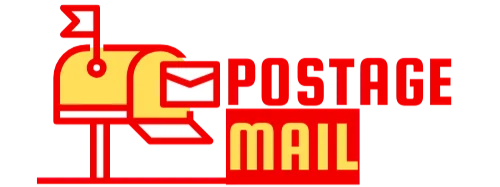
The Ultimate Guide to Understanding and Overcoming Challenges in the Modern Workplace
The modern workplace is a complex and dynamic environment, filled with opportunities and obstacles. As employees navigate their careers, they often face a range of challenges that can impact their productivity, job satisfaction, and overall well-being. In this article, we will explore some of the most common challenges faced by employees in the modern workplace and provide guidance on how to overcome them.
The Changing Nature of Work
The world of work is undergoing a significant transformation, driven by technological advancements, shifting demographics, and evolving societal values. As a result, employees are facing new and unfamiliar challenges that require adaptability, resilience, and a willingness to learn. Some of the key changes shaping the modern workplace include:
- The rise of remote and flexible work arrangements
- The increasing importance of technology and digital literacy
- The growing need for continuous learning and professional development
- The shift towards a more collaborative and team-based work environment
Managing the Challenges of Remote Work
The shift towards remote work has brought many benefits, including increased flexibility and reduced commuting times. However, it also presents a range of challenges, including:
- Social isolation and disconnection from colleagues and the organization
- Difficulty separating work and personal life
- Technical issues and communication breakdowns
- Blurred boundaries and expectations
To overcome these challenges, employees can take several steps, including:
- Establishing a dedicated workspace and routine
- Staying connected with colleagues and management through regular communication
- Setting clear boundaries and expectations with family and friends
- Prioritizing self-care and taking breaks
Developing the Skills Needed to Succeed in the Modern Workplace
As the nature of work continues to evolve, employees are facing a growing need to develop new skills and competencies. Some of the key skills required to succeed in the modern workplace include:
- Digital literacy and technical skills
- Collaboration and teamwork
- Adaptability and flexibility
- Communication and interpersonal skills
- Critical thinking and problem-solving
To develop these skills, employees can take advantage of a range of resources, including:
- Training and development programs offered by their organization
- Online courses and tutorials
- Professional certifications and credentials
- Mentoring and coaching
Building Resilience and Managing Stress
The modern workplace can be a high-pressure environment, with employees facing a range of demands and stressors. To manage stress and build resilience, employees can take several steps, including:
- Prioritizing self-care and taking breaks
- Developing a support network of colleagues, friends, and family
- Practicing mindfulness and relaxation techniques
- Setting clear boundaries and expectations
- Seeking help when needed
Creating a Positive and Inclusive Work Culture
A positive and inclusive work culture is essential for employee well-being, job satisfaction, and productivity. To create such a culture, organizations can take several steps, including:
- Fostering a sense of community and connection among employees
- Promoting diversity, equity, and inclusion
- Encouraging collaboration and teamwork
- Recognizing and rewarding employee contributions
- Providing opportunities for growth and development
The Importance of Leadership in Shaping the Modern Workplace
Effective leadership is critical in shaping the modern workplace and addressing the challenges faced by employees. Leaders can play a key role in:
- Setting the tone and culture of the organization
- Fostering a sense of purpose and direction
- Providing guidance and support
- Encouraging innovation and creativity
- Driving change and transformation
To be effective, leaders must be able to adapt to the changing needs of the organization and its employees. This requires a range of skills and competencies, including:
- Emotional intelligence and empathy
- Strategic thinking and vision
- Communication and interpersonal skills
- Collaboration and teamwork
- Flexibility and adaptability
Navigating Career Transitions and Change
Career transitions and change are a natural part of the modern workplace. To navigate these transitions successfully, employees can take several steps, including:
- Developing a growth mindset and being open to new opportunities
- Building a professional network and seeking guidance
- Staying up-to-date with industry trends and developments
- Prioritizing skills development and continuous learning
- Being proactive and taking initiative
Conclusion
The modern workplace is a complex and dynamic environment, filled with opportunities and obstacles. By understanding the challenges faced by employees and providing guidance on how to overcome them, we can help to create a more positive, productive, and inclusive work culture. Whether you are an employee, manager, or leader, there are many steps you can take to navigate the challenges of the modern workplace and achieve success.
Key Takeaways
- The modern workplace is undergoing significant changes driven by technological advancements, shifting demographics, and evolving societal values.
- Employees face a range of challenges, including managing remote work, developing new skills, and building resilience.
- Organizations can create a positive and inclusive work culture by fostering a sense of community, promoting diversity and inclusion, and providing opportunities for growth and development.
- Effective leadership is critical in shaping the modern workplace and addressing the challenges faced by employees.
- Employees can navigate career transitions and change by developing a growth mindset, building a professional network, and prioritizing skills development.
By following the guidance outlined in this article, employees, managers, and leaders can work together to create a more positive, productive, and inclusive work culture that supports the well-being and success of all employees.
Frequently Asked Questions
What are the main challenges faced by employees in the modern workplace?
The modern workplace is complex, with challenges including managing remote work, developing new skills, and building resilience.
How can employees manage the challenges of remote work?
Employees can establish a dedicated workspace, stay connected with colleagues, set clear boundaries, and prioritize self-care.
What skills are required to succeed in the modern workplace?
Key skills include digital literacy, collaboration, adaptability, communication, and critical thinking.
How can organizations create a positive and inclusive work culture?
Organizations can foster a sense of community, promote diversity and inclusion, and provide opportunities for growth and development.
What role does leadership play in shaping the modern workplace?
Effective leadership is critical in setting the tone and culture, fostering a sense of purpose, and driving change and transformation.
How can employees navigate career transitions and change?
Employees can develop a growth mindset, build a professional network, stay up-to-date with industry trends, and prioritize skills development.

